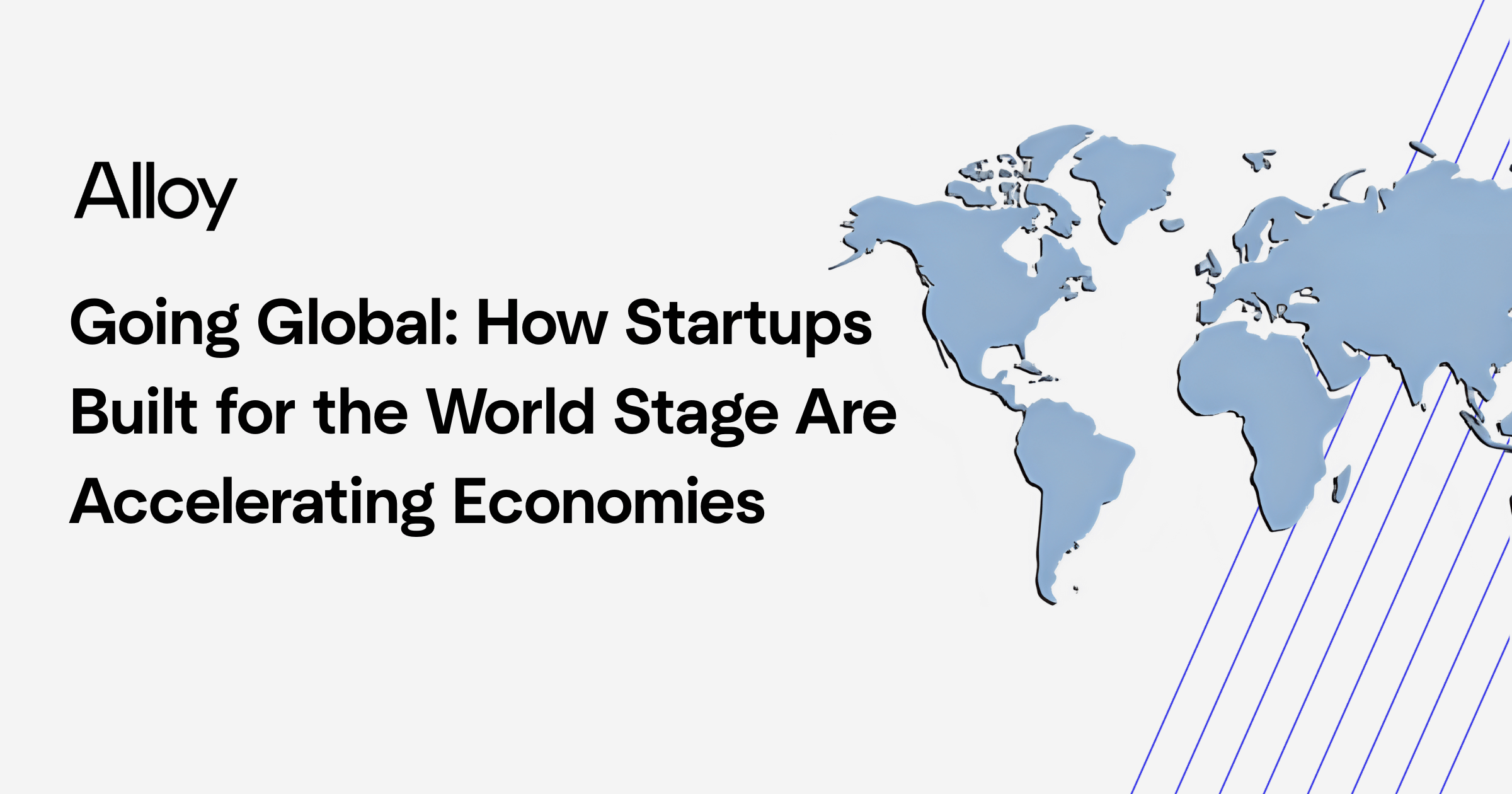Entrepreneurship is the most powerful driver of economic growth, particularly well-demonstrated in secularly stagnant countries where startup activity has redefined entire economies. As local markets in these countries quickly reach their limits, the future of GDP growth will depend on startups that set their sights beyond borders from the very beginning. Competing globally, however, is far from simple. Success demands building a culture that celebrates ambition and risk, accessing capital that supports rapid growth, and cultivating talent prepared for new markets. Non-U.S. founders must consider internationalizing sooner than their U.S. startup counterparts, at the risk of navigating unfamiliar challenges with limited resources. Getting it right can transform not just their companies, but their countries’ economic futures by unlocking new opportunities, setting higher standards, and fueling cycles of investment and innovation.
Harnessing an economic engine
Entrepreneurship is the engine that powers economies. Nowhere is this more apparent than in the United States, consistently ranked among the world’s top startup ecosystems.1 Backed by a combination of cultural momentum, capital depth, and international connectivity, the U.S. remains a launchpad for companies that redefine industries and set global standards. In 2024 alone, U.S. startups raised nearly $314 billion in venture capital2 — more than the next 63 countries combined3.
But this is not merely about venture dollars or unicorn counts. Startups play an outsized role in economic development. In the U.S., small businesses contribute 56% of GDP.4 Venture-backed companies, though fewer in number, have a disproportionate effect on the U.S. economy: representing the majority of market cap and R&D investment among recently founded public companies.5
For economic development organizations around the world, particularly in “secularly stagnant” economies – countries with advanced economies, but sluggish entrepreneurial activity – the message is clear: startups matter. And increasingly, governments are responding with many countries making admirable strides.
For example, Chile has emerged as a regional startup hub in Latin America, driven largely by its pioneering public program, Start-Up Chile. Launched in 2010 by the Chilean government, this accelerator was designed to attract global entrepreneurs and foster a culture of innovation through equity-free seed funding, mentorship, and a one-year residency visa, making Santiago a launching pad for startups from over 85 countries.8 By 2020, it had supported over 1,600 startups, contributing more than $1 billion in economic impact.9 Complementary policies, such as streamlined business registration, investment in digital infrastructure, and strong public-private collaboration, further catalyzed growth.
Moving beyond “building locally”
Yet many countries still struggle to create the kind of economic impact seen in top ecosystems. As these countries strive to manifest the promises of entrepreneurship, they are discovering that it’s not enough to foster startups for local success; they must cultivate companies that compete globally. This international orientation can dramatically expand outcomes — both for startups and for the broader economy – but requires significant infrastructure and capabilities to execute on.
Spotify, founded in Sweden, offers a powerful example of the benefits of internationalizing early, not only to the business itself, but the surrounding ecosystem. The company launched with European roots but structured itself early on to compete globally — entering the U.S. market within its first three years6 and eventually listing on the NYSE. Its success catalyzed a generation of Scandinavian startups and inspired policy reforms in support of tech innovation. Sweden now leads Europe as a startup hub with over 7000 startups having collectively raised $82.6B in venture capital.7
But building global companies like Spotify requires a shift in mindset, infrastructure, and ambition.
Culturally, launching a global startup requires a mindset that embraces failure, experimentation, and speed — traits that may conflict with cultural norms or social expectations. Countries with strong honor cultures may stigmatize entrepreneurial failure, making it harder for founders to take the necessary risks. Yet demonstrated successes in markets are required to shape the cultural imagination: “world-class” is only the best you’ve ever been exposed to. Successes also form the capabilities of leaders and employees that enable them to build similar world-renowned companies of their own.
Structurally, the challenge is even more complex. Global success demands access to sophisticated investor networks, customer bases in high-growth markets, and a deep understanding of foreign competitors and regulatory environments. Venture funds typically won't invest in a geography until “investible” companies emerge — creating a chicken-and-egg problem that can only be solved through direct connections. Customer access often requires a local team whose insights enable the company to navigate the country’s unique market structure, sales approach, and regulatory environment.
And too often entrepreneurs begin building to address local needs, which constitute a limited total addressable market. While useful in catalyzing early momentum, these efforts often cap the ultimate potential of their startups. If startups eventually internationalize, they can often find the needs of other markets different enough as to require significant pivots or the competitive landscape to be rife with alternatives who can outcompete them technologically or due to market access.
That means seeking customers, capital, and competitive positioning not just locally, but in the world’s largest markets. Most economic development groups or local accelerators aren’t equipped to provide this level of enablement and rely on existing entrepreneurs to fuel their cohorts, assuming this pre-existing talent pool has the mindset and ambition to go global.
Competing on the world stage
Venture studios offer a unique, and perhaps more apt, alternative to this challenge. Unlike accelerators or venture funds, studios co-create startups from scratch, filling in the gaps that often derail early-stage ventures in secularly stagnant ecosystems.
On the talent side, venture studios define founder criteria and actively recruit entrepreneurial talent, shaping not just individual companies, but the broader cultural narrative. They embed experienced operators who work alongside founders daily, improving execution and modeling entrepreneurial behaviors.
On the capital side, studios provide the first check, giving teams the runway to reach meaningful milestones for outside investment. Standardized terms, transparent governance, and strong investor networks reduce friction and improve the chances of follow-on capital.
On the ideas side, venture studios run rigorous, repeatable processes to identify and validate unmet market needs, increasing the odds of building relevant, scalable companies with built-in customer traction. Multi-national corporations can provide unique insights to market structures, business priorities, and purchasing processes that may not be readily apparent to startups, especially those outside the geography. Furthermore, corporate co-creation enables access to first purchasers whose brand can instantly credentialize a startup and create network effects to future customer prospects.
Perhaps most importantly, venture studios structure startups for international credibility from day one. That includes legal oversight of incorporation and governance, go-to-market strategies aimed at U.S. and global customers, and networks that span borders. This intentional design opens the door to larger markets and greater outcomes.
Over time, successful studios can accelerate the “flywheel effect” for ecosystems: as more startups succeed, they attract more capital, train and inspire new entrepreneurs, and – through exits – eventually create wealth that can be re-invested in the creation of new startups, strengthening the overall economy. This compounding dynamic is what transformed Silicon Valley, and it can take root elsewhere too if the right tools and models are deployed.
At Alloy Partners, we collaborate with economic development organizations and global partners to build venture studios that enable international-scale entrepreneurship from the ground up. Our model is rooted in mutual respect, shared ambition, and co-creation. We’ve helped shape studio programs that align with national priorities, leverage corporate partnerships, and build bridges to international markets.
Whether you're a policymaker, funder, or institution looking to cultivate globally competitive startups, the venture studio model offers a compelling, tested path forward. We’d love to work together to unlock a new generation of startups — not just for local success, but for global impact.
Footnotes
1 US News & World Report, 2024 Rankings for Best Countries for Entrepreneurship
2 Crunchbase News, 2024 Global Venture Capital Report
3 Dealroom, The State of Global VC (2024)
4 US Chamber of Commerce, Small Business Impact Report
5 Stanford Graduate School of Business, The Economic Impact of VC-Backed Companies
6 Music Business Worldwide, Spotify profile
7 Tracxn, Overview of startups in Sweden
8 IBS Center for Management Research, Start-Up Chile – A Public Accelerator Program Seeding the Latin American Entrepreneurial Ecosystem
9 Forbes, Start-Up Chile’s Impact (2010-2018): Inside the Revolutionary Startup Accelerator















.png)


























































































